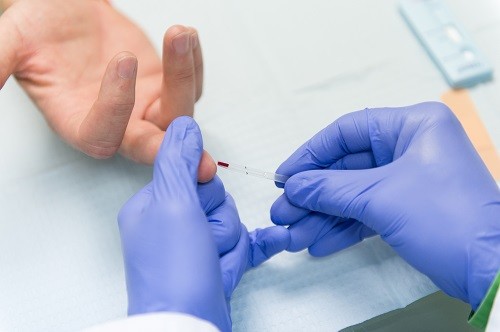
Over the next 12 months, Lowcountry AIDS Services will be expanding its HIV testing and prevention efforts into rural areas of Berkeley and Dorchester counties as well as into high-risk areas of Charleston. To help fund the program, LAS has received a $35,400 grant from the Roper Saint Francis Physicians Endowment.
In a partnership between the Medical Society of South Carolina and Coastal Community Foundation, the endowment provides annual grants to nonprofit organizations for the express purpose of improving health, wellness and access for tri-county area residents. The grants committee focuses on four community health needs, including access to services and coverage for uninsured and underinsured. The committee also gives priority to emerging needs in the community.
Lowcountry AIDS Services’ expansion highlights both of those areas. The Charleston region has been identified by the Centers for Disease Control and Prevention as an “emerging community” for its high rate of HIV infections and AIDS cases. LAS identified a significant increase in new HIV infections in 2015 with an almost 200 percent year-over-year infection rate. Additionally, IV drug use, especially with opioids, has been increasing nationwide, with rural areas hardest hit and adding risk for further HIV infections.
HIV testing in rural communities helps LAS reach audiences that are rarely offered HIV tests through their medical interactions and allow for dissemination of educational information to help rural residents make more informed decisions related to their sexual health. Additionally, targeted, high-risk populations need increased opportunities for access to testing and educational programming in communities with reduced access to healthcare, lower income and higher prevalence, such as jails and homeless shelters.
The funding provided by the Roper Saint Francis Physicians Endowment will complement and expand LAS’ existing testing, outreach and HIV prevention education which is funded through Trident United Way, the S.C. Department of Health and Environmental Control and private donors.
Program expansion provided by this grant will allow LAS to go beyond performing free testing for HIV and other sexually transmitted infections at its office in North Charleston four days a week. LAS expects to reach an additional 20 percent by hosting testing events and programs in areas outside its office – that equates to about 240 or more additional individuals who will be tested and more than 1,000 people will receive educational materials and safer-sex materials to help decrease potential for HIV and STI infections. All newly diagnosed HIV-positive individuals identified through expanded testing will be linked to medical care within 30 days.
LAS will add a part-time testing and prevention specialist to perform off-site testing and prevention services two to three times per week. These testing events will focus on partnerships with more than 20 rural health clinics, in-community health providers, wellness clinics and commercial pharmacies.
“In 2015, our agency identified 33 percent of the new HIV infections from the entire statewide pool of those found by community based organizations, even though we only cover about 15 percent of the state population within our service area,” said Bradley Childs, LAS executive director. “We know the need is great in our community and we have to expand our outreach efforts. We are grateful to the Roper Saint Francis Physicians Endowment for this funding so we can continue to help even more individuals and connect them to medical care.”
About Lowcountry AIDS Services
Lowcountry AIDS Services is nonprofit organization serving men, women and children living with HIV/AIDS in Berkeley, Charleston and Dorchester counties. LAS provides case management, access to medical care, housing assistance, financial assistance, nutritional assistance and legal assistance along with an array of other supportive services to hundreds in the Charleston area. LAS also works to prevent this epidemic through education, media campaigns, community outreach and free, daily HIV/STD testing. For more information, visit aids-services.com.
